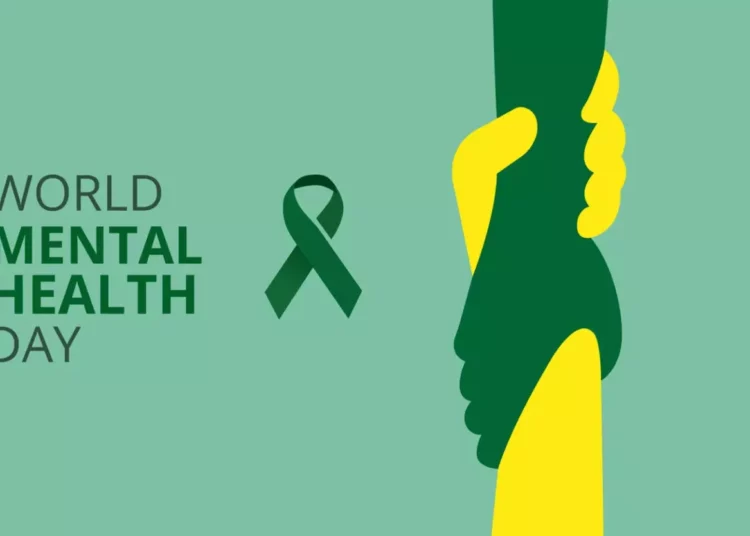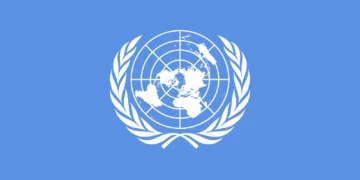Experts aver that good mental health is vital to the overall well-being of individuals. Yet, one in eight people, globally, are believed to be living with one form of mental health condition or the other which can impact negatively on their physical health, their well-being, how they connect with others as well as their livelihoods.
This is even more worrisome with the rate at which such conditions are affecting an increasing number of adolescents and young people.
But the argument here is that mental health condition should not be a reason to deprive persons of their human rights or to exclude them from decisions about their own health.
Yet, all over the world, people with mental health conditions continue to experience a wide range of human rights violations, with many excluded from community life and discriminated against.
Mental illnesses such as depression and anxiety are highly rampant in low‐ and middle‐income countries like Nigeria. It is also disturbing that Nigerians lack adequate knowledge regarding mental health disorders and have inadequate information regarding some of their underlying causes such as drug and alcohol use (80.8 per cent) and, worse, the weird idea that it could be as a result of possession by some evil forces.
It is estimated that one out of four Nigerians, about 60 million people, which is about 30 – 35 per cent of the population, are living with some sort of mental illness and less than 10 percent of this population have access to professional assistance.
The World Health Organization (WHO) estimates that only about three percent of the government’s budget on health goes to mental health.
Nigeria’s mental health policy was first formulated in 1991. Its components include advocacy, promotion, prevention, treatment and rehabilitation.
In 2003, a bill for the establishment of Mental Health Act was introduced but was later withdrawn in April 2009 when no considerable progress was made but was re-introduced to the National Assembly four years later, precisely on March 20, 2013.
The bill was proposed to protect the rights of persons with mental disorders, ensure equal access to treatment and care, discourage stigma and discrimination and set standards for psychiatric practice in Nigeria.
The bill makes provisions for access to mental healthcare and services, voluntary and involuntary treatment, accreditation of professionals and facilities, law enforcement and other judicial issues for people with mental illness, mechanisms to oversee involuntary admission and also to implement the provision of Mental Health Legislations.
During the 2020 World Mental Health Day celebration, the Nigerian Medical Association (NMA) disclosed that about 350 psychiatrists currently serve Nigerians with an estimated population of about 200 million people.
Shortage of mental health professionals in addition to inadequate infrastructure and poor public attitudes towards mental illness has resulted to about 80 percent of people with serious mental illness being unable to access adequate care.
A renowned consultant psychiatrist, Dr Vincent Udenze opined that awareness is important and cannot be over- emphasised if Nigeria is committed to addressing its mental health issues.
If people know that they need help, they should be able to avail themselves of these services without let or hindrance.
It is the considered opinion of this newspaper that more personnel ought to be made available and where there’s dearth, more trained with hospitals built to provide these services.
The government’s role in providing access for people living with mental health is crucial. In our view, the authorities must ensure that mental health services are affordable at subsidised rate, not only in public hospitals but private ones as well.
In this 21st century, it is sad and unfortunate that many Nigerians still associate mental illness with evil spirits, Voodoo and related supernatural causes, with this misconception prompting many to seek treatment from religious leaders, traditional healers etc.
Poor public education about mental health has allowed many misconceptions to persist and low public acceptance of mental health patients to thrive.
For us, as a newspaper, looking back at how awareness was deployed to demistify the raging HIV pandemic over three decades ago, and dispel the associated stigmatisation, a lot is needed in this regard to do same for mental health.
We believe that right from the kindergarten school curricular, a lot can be achieved in tackling this from that age where ills of drug abuse can be taught and other vices that predispose to mental ill-health.
In addition to this is the call for the reinstatement of the practice of family extended system we have since jettisoned and for which we are paying a heavy price today.
Gone are the days when Nigerians were their brother’s keeper and what affected one, affected all, instead of looking the other way as being practiced now.
We appeal to traditional and religious leaders to take this much needed awareness to their flock and community, that mental health issue is not evil.
The call becomes imperative following the discoveries by security agents of high number of people with mental illnesses who are living in ankle chains at institutions designed for care and in some instances, religious or even their own family homes.





